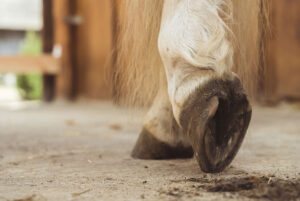MRI to Identify Bone Changes in Racehorses (AAEP 2012)
Horses can’t describe brewing musculoskeletal discomfort the way human athletes can, so trainers and veterinarians don’t know which horses to put on the proverbial bench to prevent career- or even life-ending injuries. But an equine research team has been using MRI to detect bone changes that could indicate a horse is at risk for catastrophic fetlock fractures before an accident occurs, allowing such career- or even life-saving intervention.
John G. Peloso, DVM, MS, Dipl. ACVS, owner, partner, and surgeon at the Equine Medical Center of Ocala, in Florida described the team’s research on fetlock and sesamoid fractures at the 2012 American Association of Equine Practitioners Convention, held Dec. 1-5 in Anaheim, Calif. Peloso relayed that the fetlock joint is the most common location of musculoskeletal disease leading to the euthanasia of Thoroughbred racehorses in the United States, United Kingdom, and Hong Kong. He cited several studies by Sue Stover, DVM, PhD, Dipl. ACVS, of the University of California, Davis, and colleagues that demonstrated catastrophic failure of the fetlock was responsible for more than 50% of cases submitted to the California Horse Racing Board (CHRB) postmortem examination program (which requires all horses that die within the racing enclosure at CHRB tracks to undergo a necropsy) over 15 years.
Additionally, he said, Stover et al. have found that pre-existing disease is present in almost every major bone that racing horses fracture.
Peloso said MRI is veterinarians’ preferred imaging modality for bone disease, and evidence suggests it could be used prerace to identify bone abnormalities of the fetlock before injuries occur. To investigate this, he and colleagues evaluated standing MRI as a potential prerace tool for fracture-risk assessment by comparing differences in bone disease between horses with fractures (cases) and horses without fracture (controls)
Create a free account with TheHorse.com to view this content.
TheHorse.com is home to thousands of free articles about horse health care. In order to access some of our exclusive free content, you must be signed into TheHorse.com.
Start your free account today!
Already have an account?
and continue reading.

Related Articles
Stay on top of the most recent Horse Health news with

















